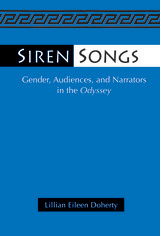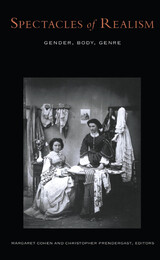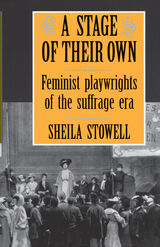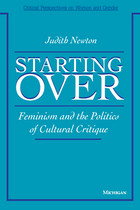9 start with S start with S

With a recurring focus on how his mother’s tragic weaknesses and her compelling strengths affected his development, Awkward intersperses the chronologically arranged autobiographical sections with ruminations on his own interests in literary and cultural criticism. As a male scholar who has come under fire for describing himself as a feminist critic, he reflects on such issues as identity politics and the politics of academia, affirmative action, and the Million Man March.
By connecting his personal experiences with larger political, cultural, and professional questions, Awkward uses his life as a palette on which to blend equations of race and reading, urbanity and mutilation, alcoholism, pain, gender, learning, sex, literature, and love.


More than a literary study, this book is an analysis of sexual attitudes and practices in the Romantic period, and a contribution to the history and theory of feminism. Shelley is shown to have anticipated in many ways the work of modern students of human sexual behavior. He was strikingly ahead of his time in his attitude toward women: his ideal of love postulated the equality of the sexes, and his theory of psychosexual identification, like mated to like, extended the feminist ideology of his mother-in-law, Mary Wollstonecraft. Moreover, in his own person and practice he came close to the androgynous ideal of the modern woman's movement.
In exploring the many aspects of his subject, Brown compares Shelley with his contemporaries, particularly Byron, and draws upon extensive research into the laws, ideas, and practices of the period.

By exploring the life and work of the influential feminist thinker Simone de Beauvoir, this book shows how each of us lives within political and social structures that we can--and must--play a part in transforming. It argues that Beauvoir’s careful examination of her own existence can also be understood as a dynamic method for political thinking.
As the contributors illustrate, Beauvoir's political thinking proceeds from the bottom up, using examples from individual lives as the basis for understanding and transforming our collective existence. For example, she embraced her responsibility as a French citizen as making her complicit in the French war against Algeria. Here, she sees her role as an oppressor. In other contexts, she looks to the lives of individual women, including herself, to understand the dimensions of gender inequality.
This volume’s six tightly connected essays home in on the individual’s relationship to community, and how one’s freedom interacts with the freedom of other people. Here, Beauvoir is read as neither a liberal nor a communitarian. The authors focus on her call for individuals to realize their freedom while remaining consistent with ethical obligations to the community. Beauvoir's account of her own life and the lives of others is interpreted as a method to understand individuals in relations to others, and as within structures of personal, material, and political oppression. Beauvoir's political thinking makes it clear that we cannot avoid political action. To do nothing in the face of oppression denies freedom to everyone, including oneself.

Siren Songs synthesizes audience-oriented and narratological approaches, and examines the relationships among three kinds of audiences: internal, implied, and actual. The author prefaces her own reading of the Odyssey with an analysis of the issues posed by the earlier feminist readings on which she builds. Should the Odyssey be read as a "closed" text, that is, as one whose meaning is highly determined, or as an "open" text whose contradictions and ambiguities undercut its overt meanings?
Siren Songs presents a feminist critique of the Odyssey in an accessible manner aimed at a more general audience. All Greek is translated, and critical terminology is clearly defined.
Lillian Eileen Doherty is Associate Professor of Classics, University of Maryland, College Park.




With this important new book, Susan Suleiman lays the foundation for a postmodern feminist poetics and theory of the avant-garde. She shows how the figure of Woman, as fantasy, myth, or metaphor, has functioned in the work of male avant-garde writers and artists of this century. Focusing also on women's avant-garde artistic practices, Suleiman demonstrates how to read difficult modern works in a way that reveals their political as well as their aesthetic impact.
Suleiman directly addresses the subversive intent of avant-garde movements from Surrealism to postmodernism. Through her detailed readings of provocatively transgressive works by André Breton, Georges Bataille, Roland Barthes, Alain Robbe-Grillet, Marcel Duchamp, Max Ernst, and others, Suleiman demonstrates the central role of the female body in the male erotic imagination and illuminates the extent to which masculinist assumptions have influenced modern art and theory. By examining the work of contemporary women avantgarde artists and theorists--including Hélène Cixous, Marguerite Duras, Monique Wittig, Luce Irigaray, Angela Carter, Jeanette Winterson, Leonora Carrington, Barbara Kruger, Jenny Holzer, and Cindy Sherman--Suleiman shows the political power of feminist critiques of patriarchal ideology, and especially emphasizes the power of feminist humor and parody.
Central to Suleiman's revisionary theory of the avant-garde is the figure of the playful, laughing mother. True to the radically irreverent spirit of the historical avant-gardes and their postmodernist successors, Suleiman's laughing mother embodies the need for a link between symbolic innovation and political and social change.
READERS
Browse our collection.
PUBLISHERS
See BiblioVault's publisher services.
STUDENT SERVICES
Files for college accessibility offices.
UChicago Accessibility Resources
home | accessibility | search | about | contact us
BiblioVault ® 2001 - 2024
The University of Chicago Press









